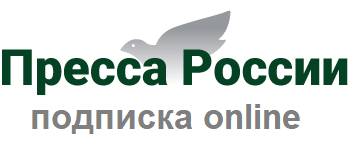Contents
OUR SPIRITUAL VALUES
O.I.ZVORYGINA —
Russian literary fairy tale: particular qualities of the genre
V.V.GAVRILOV —
“Descent into Hell” as a key motif in F.M.Dostoevsky’s novel “Crime and Punishment”
D.V.LARKOVICH —
Orphic motif in the story “The Grammar of Love” by I.A.Bunin: experience of mythopoetic interpretation
O.V.RUDNEVA —
Psychologism of stories about love in the works of A.P.Chekhov and I.A.Bunin
A.A.KHADYNSKAYA —
Emigrant muse of Russian Paris: poetry of the “Parisian note” in the historical and cultural context
N.V.GANUSHAK, M.V.TSVETKOVA —
Varlam Shalamov: “I am a chronicler of my own soul, no more”
N.A.DVORYASHINA —
The Magic Light of the Children’s Book
SEARCH. EXPERIENCE. SKILLS
Lessons
S.V.GALYAN, T.A.SIROTKINA —
Shaping of the concept of “regional text” in literature lessons
T.V.KILING —
Pechorin as the hero of his time. Two lessons in the IXth grade
S.A.TYURMOREZOVA —
“The Bright Kingdom” in F.M.Dostoevsky’s Crime and Punishment.
Xth Grade
THE SOUL MUST WORK
I.A.USANOVA —
“Against the Stream”. Literary and musical composition dedicated to the life and work of A.K.Tolstoy
New books
G.V.KUKUEVA —
Review of the educational and methodological manual by S.V.Galyan and T.A.Syrotkina “Literary Local Studies: Philological Analysis of the Regional Text” (Surgut: RIO SurGPU, 2017)
Abstracts and keywords
OUR SPIRITUAL VALUES
O.I.ZVORYGINA —
Russian literary fairy tale: particular qualities of the genre
Abstract. The article deals with the language of the Russian literary fairytale. The author’s attention is focused on units of the lexical-phraseological level and language means of chronotope expression.
Keywords: literary fairytale, genre form, language signals, lexis, phraseology, chronotope.
V.V.GAVRILOV —
“Descent into Hell” as a key motif in F.M.Dostoevsky’s novel “Crime and Punishment”
Abstract. The article attempts to consider the Descent into Hell as a key motif of the F.M.Dostoevsky’s novel “Crime and Punishment”. This approach of analyzing the novel could be fully justified, since, according to the author, the main characters of the novel are located in parallel in two worlds: real and mythological. They go through initiation and descend into the realm of the dead for different purposes (Raskolnikov — to test his theory of exclusivity, Sonia — to save her beloved). The author suggests a system of argumentation for this position, noting that at the end of the novel the characters see a way out of the realm of darkness, but the result of the Descent into Hell remains outside the narrative framework.
Keywords: Descent into Hell, Orpheus and Eurydice, myth, Psyche, initiation, real and imaginary world, underground world.
D.V.LARKOVICH —
Orphic motif in the story “The Grammar of Love” by I.A.Bunin: experience of mythopoetic interpretation
Abstract. The article suggests reading Bunin’s story through the prism of mythopoetics: revealing links with the myth of Orpheus and Eurydice.
Keywords: I.A.Bunin, “The Grammar of Love”, an Orphic motif, mythopoetics, cultural archetypes.
O.V.RUDNEVA —
Psychologism of stories about love in the works of A.P.Chekhov and I.A.Bunin
Abstract. The article touches upon methods of creation of psychologism in stories about love by A.P.Chekhov and I.A.Bunin in the context of their concept of man. The conclusion is made about common creative techniques in depicting the phenomenon of love in human life and differences in understanding the essence of human life.
Keywords: artistic anthropology, psychologism, I.A.Bunin, A.P.Chekhov.
A.A.KHADYNSKAYA —
Emigrant muse of Russian Paris: poetry of the “Parisian note” in the historical and cultural context
Abstract. The article is devoted to the study of the “Parisian note” in poetry in the broad historical and cultural context of the first wave of Russian emigration. The atmosphere of Russian Paris influenced poetics and aesthetics of this poetic movement. A.Shteiger and L.Chervinskaya are explored as the brightest representatives of the “Parisian note” in which “undetected generation” was reflected most deeply.
Keywords: poetry of the first wave of Russian emigration, Russian Paris, poetry of the “Parisian note”, acmeistic traditions, poetry of A.Shteiger and L.Chervinskaya.
N.V.GANUSHAK, M.V.TSVETKOVA —
Varlam Shalamov: “I am a chronicler of my own soul, no more”
Abstract. The article is devoted to the consideration of certain aspects of V.T.Shalamov, his aesthetic conception of “new” prose, is designed to help the teacher-verbatim as well as the university teacher expand the idea of the “camp” theme in the domestic literature of the twentieth century.
Keywords: camp theme, aesthetic principles of creativity, “new prose” of V.Shalamov, art world, “Kolyma stories”.
N.A.DVORYASHINA —
The Magic Light of the Children’s Book
Abstract. The article reflects on the significance of the children’s literature in the spiritual and moral upbringing of the child and on specific examples and shows the available possibilities for the teacher to form a “cordial ear” in children.
Keywords: children, book, reading, reader, moral potential, spiritual insights, life values, soul, heart, love, faith, word, artist, nature, feelings, material, spiritual.
SEARCH. EXPERIENCE. SKILLS
Lessons
S.V.GALYAN, T.A.SIROTKINA —
Shaping of the concept of “regional text” in literature lessons
Abstract. The article is devoted to one of the actual problems of teaching literature — the concept and meaning of the “regional text”. The authors propose a lesson devoted to the shaping of this concept, using the example of one of the regional texts from city of Yugorsk.
Keywords: regional text, literary study of local lore, Ugra, Ugra authors.
T.V.KILING —
Pechorin as the hero of his time. Two lessons in the IXth grade
Abstract. The article provides a plan for lessons devoted to Pechorin; proposes questions and tasks for analyzing the novel, summarizing knowledge, developing the speech. The concepts of the “hero of our time”, prototype and psychological portrait are introduced.
Keywords: the era of 1830—1840s, hero of time, image of Pechorin, Pechorin’s features, common with other heroes of the novel.
S.A.TYURMOREZOVA —
“The Bright Kingdom” in F.M.Dostoevsky’s Crime and Punishment.
Xth Grade
Abstract. The article suggests the analysis of the text with the purpose of revealing the theme of duality, focusing on the positive qualities and bright sides of the characters, directing students to reflect on the moral problems posed in the novel.
Keywords: crime, punishment, spiritual death, repentance, spiritual rebirth, the image of God in man.
THE SOUL MUST WORK
I.A.USANOVA —
“Against the Stream”. Literary and musical composition dedicated to the life and work of A.K.Tolstoy
Abstract. The article presents a script of a literary-musical composition that tells the story of the life path of the XIXth century Russian poet A.K.Tolstoy. The story of the key facts of his biography is supplemented by the extensive artistic material and is accompanied by the characterization of the musical and the visual supplements.
Keywords: A.K.Tolstoy, poetry, “Silver Prince”, “Ghoul”, “The Death of Ivan the Terrible”.
New books
G.V.KUKUEVA —
Review of the educational and methodological manual by S.V.Galyan and T.A.Syrotkina “Literary Local Studies: Philological Analysis of the Regional Text” (Surgut: RIO SurGPU, 2017)
Abstract. The review presents an analysis of the structure and content of the textbook by S.V.Galyan and Т.А.Sirotkina “Local Literary Studies: Philological Analysis of the Regional Text”. The reffered manual considers the regional text in the context of the cultural space of Russia and definies the target audience as literature teachers and high school students. Practical-oriented nature of tasks aimed at achieving educational results identified in the GEF for complete general education is emphasized.
Keywords: regional text, educational situation, meta-subject skills, elective course.









